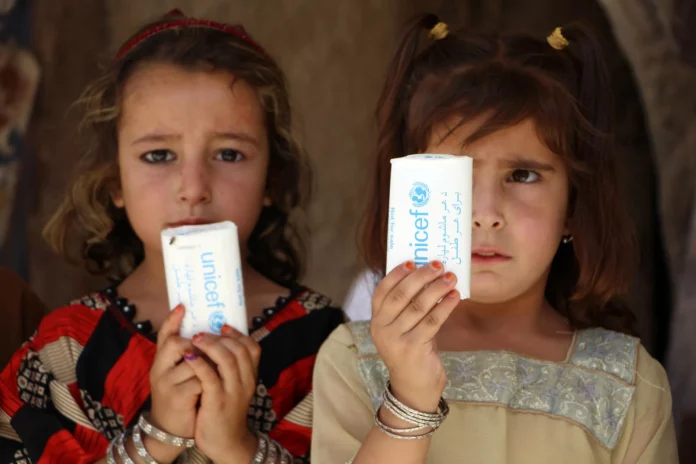Global Child Vaccination Rates Remain Below Pre-Pandemic Levels, Raising Concerns Among Experts
According to a recent report by the World Health Organization (WHO) and UNICEF, global child vaccination rates remained below pre-pandemic levels last year. This news has raised concerns among experts, who fear that this could lead to a resurgence of preventable diseases and put millions of children at risk.
In 2023, 84% of children worldwide received the recommended three doses of diphtheria-tetanus-pertussis (DTP) vaccine, a slight decrease from the 86% coverage in 2019. This may seem like a small drop, but it represents millions of children who did not receive life-saving vaccines due to disruptions caused by the COVID-19 pandemic.
The report also revealed that measles vaccination coverage has stagnated at 85% for the past decade, far below the 95% coverage needed to prevent outbreaks. This is especially concerning as measles is highly contagious and can lead to serious complications, including death.
The decline in vaccination rates can be attributed to various factors, including lockdowns, travel restrictions, and fear of contracting COVID-19 at health facilities. Many countries also faced challenges in maintaining routine immunization services due to overwhelmed healthcare systems and shortages of essential supplies.
Dr. Tedros Adhanom Ghebreyesus, Director-General of the WHO, expressed his concern over the decline in vaccination rates, stating, “The COVID-19 pandemic has caused immense disruptions to health systems around the world, and we cannot afford to let our guard down when it comes to routine immunizations.”
Experts warn that the decline in vaccination rates could have devastating consequences, not only for individual children but also for global health. Vaccines are one of the most effective and cost-effective public health interventions, preventing an estimated 2-3 million deaths every year.
Moreover, the decline in vaccination rates could lead to outbreaks of preventable diseases, putting a strain on already overwhelmed healthcare systems. This could also have a ripple effect on other health services, such as maternal and child health, as well as routine immunization programs.
UNICEF Executive Director Henrietta Fore emphasized the importance of maintaining routine immunization services, stating, “We cannot allow the fight against one deadly disease to cause us to lose ground in the fight against other diseases. We must prioritize immunization services and ensure that children are not left behind.”
To address the decline in vaccination rates, the WHO and UNICEF have called for urgent action from governments and partners. This includes ensuring that routine immunization services are maintained, implementing catch-up campaigns to reach children who missed out on vaccines, and addressing vaccine hesitancy through effective communication and community engagement.
The report also highlights the need for increased investment in immunization programs, particularly in low- and middle-income countries. The COVID-19 pandemic has highlighted the importance of strong and resilient health systems, and investing in routine immunization is a crucial step towards achieving this.
Despite the challenges posed by the pandemic, there have been some success stories in maintaining or even increasing vaccination rates. For example, countries like Brazil, India, and Vietnam have managed to maintain high levels of routine immunization coverage, even during the pandemic.
This shows that with political will, adequate resources, and innovative strategies, it is possible to overcome the challenges and ensure that children receive life-saving vaccines.
In conclusion, the decline in global child vaccination rates is a cause for concern and requires urgent action from governments and partners. We cannot afford to let the progress made in reducing child mortality be reversed due to the COVID-19 pandemic. Let us work together to ensure that every child has access to life-saving vaccines and a chance at a healthy future.


